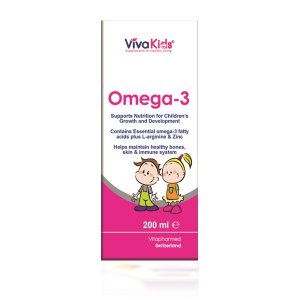Vitamin C deficiency is rare in the United States and Canada. People who get little or no vitamin C (below about 10 mg per day) for many weeks can get scurvy. Scurvy causes fatigue, inflammation of the gums, small red or purple spots on the skin, joint pain, poor wound healing, and corkscrew hairs. Additional signs of scurvy include depression as well as swollen, bleeding gums and loosening or loss of teeth. People with scurvy can also develop anemia. Scurvy is fatal if it is not treated.
What are some effects of vitamin C on health?
Scientists are studying vitamin C to understand how it affects health. Here are several examples of what this research has shown.
Cancer prevention and treatment
People with high intakes of vitamin C from fruits and vegetables might have a lower risk of getting many types of cancer, such as lung, breast, and colon cancer. However, taking vitamin C supplements, with or without other antioxidants, doesn’t seem to protect people from getting cancer.
It is not clear whether taking high doses of vitamin C is helpful as a treatment for cancer. Vitamin C’s effects appear to depend on how it is administered to the patient. Oral doses of vitamin C can’t raise blood levels of vitamin C nearly as high as intravenous doses given through injections. A few studies in animals and test tubes indicate that very high blood levels of vitamin C might shrink tumors. But more research is needed to determine whether high-dose intravenous vitamin C helps treat cancer in people.
Vitamin C dietary supplements and other antioxidants might interact with chemotherapy and radiation therapy for cancer. People being treated for cancer should talk with their oncologist before taking vitamin C or other antioxidant supplements, especially in high doses.
Cardiovascular disease
People who eat lots of fruits and vegetables seem to have a lower risk of cardiovascular disease. Researchers believe that the antioxidant content of these foods might be partly responsible for this association because oxidative damage is a major cause of cardiovascular disease. However, scientists aren’t sure whether vitamin C itself, either from food or supplements, helps protect people from cardiovascular disease. It is also not clear whether vitamin C helps prevent cardiovascular disease from getting worse in people who already have it.
Age-related macular degeneration (AMD) and cataracts
AMD and cataracts are two of the leading causes of vision loss in older people. Researchers do not believe that vitamin C and other antioxidants affect the risk of getting AMD. However, research suggests that vitamin C combined with other nutrients might help slow AMD progression.
In a large study among older people with AMD who were at high risk of developing advanced AMD, those who took a daily dietary supplement with 500 mg vitamin C, 80 mg zinc, 400 IU vitamin E, 15 mg beta-carotene, and 2 mg copper for about 6 years had a lower chance of developing advanced AMD. They also had less vision loss than those who did not take the dietary supplement. People who have or are developing the disease might want to talk with their doctor about taking dietary supplements.
The relationship between vitamin C and cataract formation is unclear. Some studies show that people who get more vitamin C from foods have a lower risk of getting cataracts. But further research is needed to clarify this association and to determine whether vitamin C supplements affect the risk of getting cataracts.
The common cold
Although vitamin C has long been a popular remedy for the common cold, research shows that for most people, vitamin C supplements do not reduce the risk of getting the common cold. However, people who take vitamin C supplements regularly might have slightly shorter colds or somewhat milder symptoms when they do have a cold. Using vitamin C supplements after cold symptoms start does not appear to be helpful.
Can vitamin C be harmful?
Taking too much vitamin C can cause diarrhea, nausea, and stomach cramps. In people with a condition called hemochromatosis, which causes the body to store too much iron, high doses of vitamin C could worsen iron overload and damage body tissues.
The daily upper limits for vitamin C are listed below:
Life Stage Upper Limit
Birth to 12 months Not established
Children 1–3 years 400 mg
Children 4–8 years 650 mg
Children 9–13 years 1,200 mg
Teens 14–18 years 1,800 mg
Adults 2,000 mg
Are there any interactions with vitamin C that I should know about?
Vitamin C dietary supplements can interact or interfere with medicines that you take. Here are several examples:
- Vitamin C dietary supplements might interact with cancer treatments, such as chemotherapy and radiation therapy. It is not clear whether vitamin C might have the unwanted effect of protecting tumor cells from cancer treatments or whether it might help protect normal tissues from getting damaged. If you are being treated for cancer, check with your healthcare provider before taking vitamin C or other antioxidant supplements, especially in high doses.
- In one study, vitamin C plus other antioxidants (such as vitamin E, selenium, and beta-carotene) reduced the heart-protective effects of two drugs taken in combination (a statin and niacin) to control blood-cholesterol levels. It is not known whether this interaction also occurs with other statins. Healthcare providers should monitor lipid levels in people taking both statins and antioxidant supplements.
Tell your doctor, pharmacist, and other healthcare providers about any dietary supplements and medicines you take. They can tell you if those dietary supplements might interact or interfere with your prescription or over-the-counter medicines or if the medicines might interfere with how your body absorbs, uses, or breaks down nutrients.
Vitamin C and healthful eating
People should get most of their nutrients from food, advises the federal government’s Dietary Guidelines for Americans. Foods contain vitamins, minerals, dietary fiber and other substances that benefit health. In some cases, fortified foods and dietary supplements may provide nutrients that otherwise may be consumed in less-than-recommended amounts. For more information about building a healthy diet, refer to the Dietary Guidelines for Americansexternal link disclaimer and the U.S. Department of Agriculture’s MyPlateexternal link disclaimer.



















